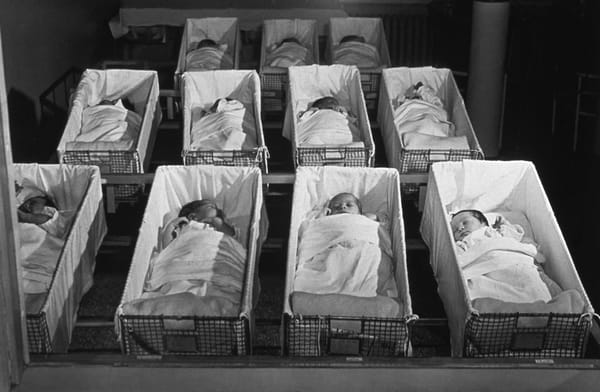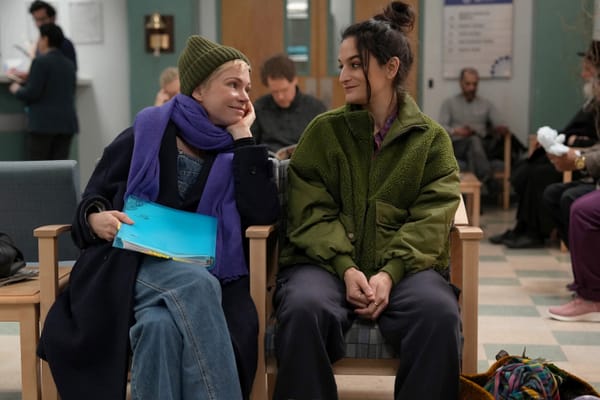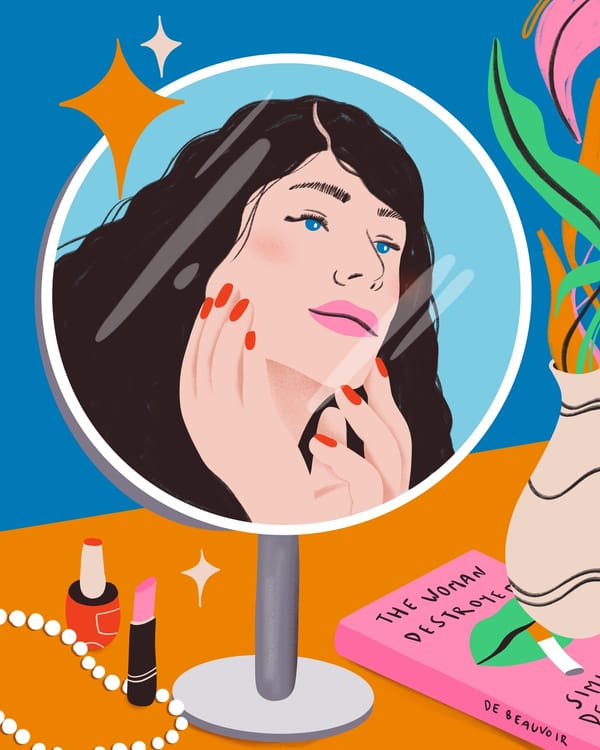Am I Really the Adult in the Room Now?
My mother was always the one in the family who took care of everyone and everything. Now, her mind is going, and none of us know quite where we stand.
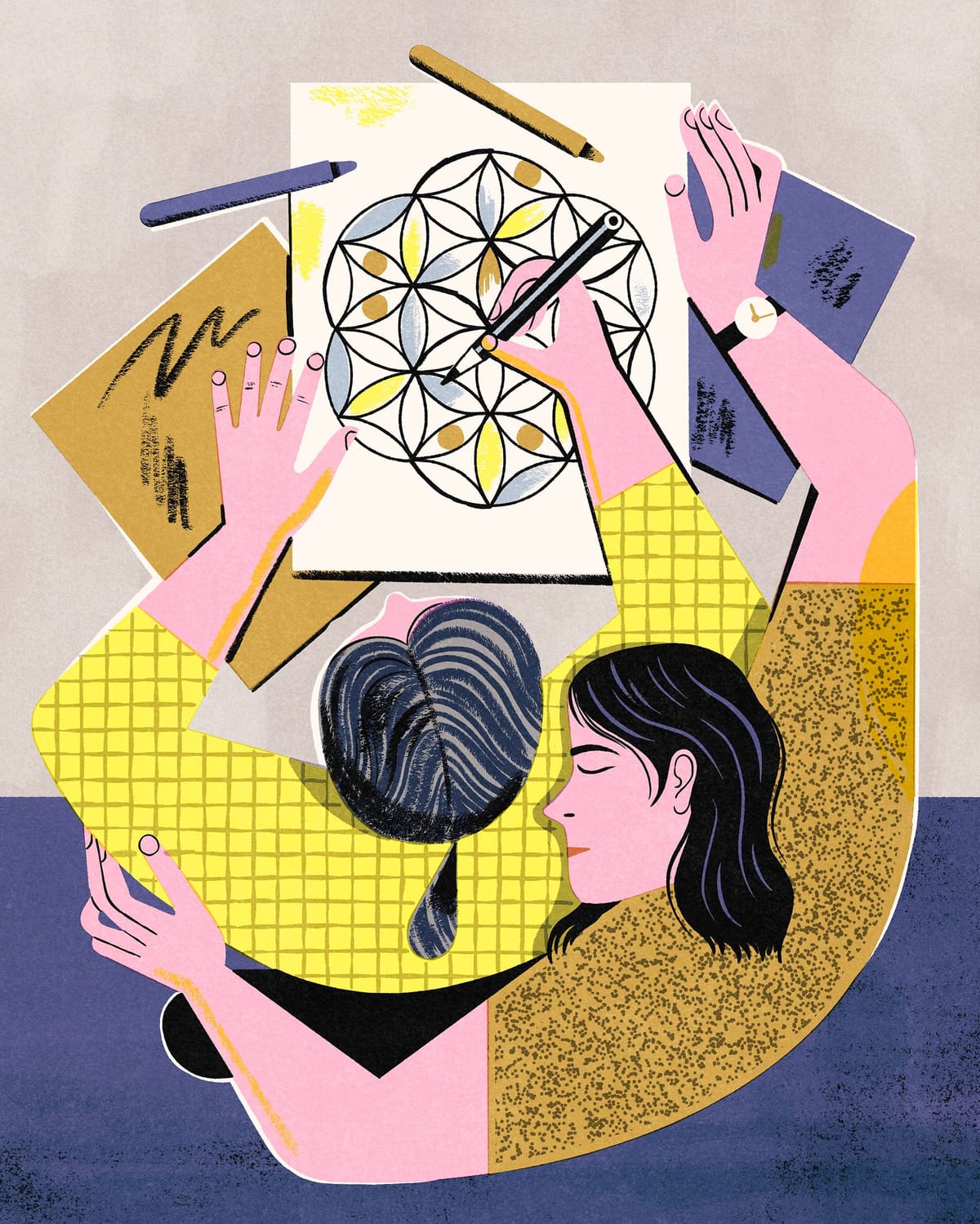
When I was about 2 years old and still living in Soviet Russia in the 1980s, I remember toddling up to the adults’ table, where our extended family was gathered for dinner. I approached my mom, then announced: Kayandasik v uske! which translates from baby Russian as "I have a pencil in my ear!"
The grownups all looked into my ear and saw a tiny black dot—the mere tip of a pencil lead—lodged deep inside. Everyone proceeded to scream and flail their arms in horror and helplessness—except, that is, for my mom. She calmly produced a pair of tweezers and with firm, confident hands, pulled the lead out.
Everyone proceeded to scream and flail their arms in horror and helplessness—except, that is, for my mom.
That's how it always was, my mom’s calm and steady, 'It will be fine'—the backdrop to our life. When my dad fell from a chair while hanging curtains, broke the window, and cut an artery in his arm, my mother grabbed a pair of stockings and tied them above the wound. When he hesitated about whether we emigrate to Israel in the ‘90s because of antisemitism, she was the optimistic force that motivated us to make the decision. After the move, although she could barely speak Hebrew, she found work, learned how to drive, and remained the adult in the room even after all her children—my sister, brothers and I—became adults.
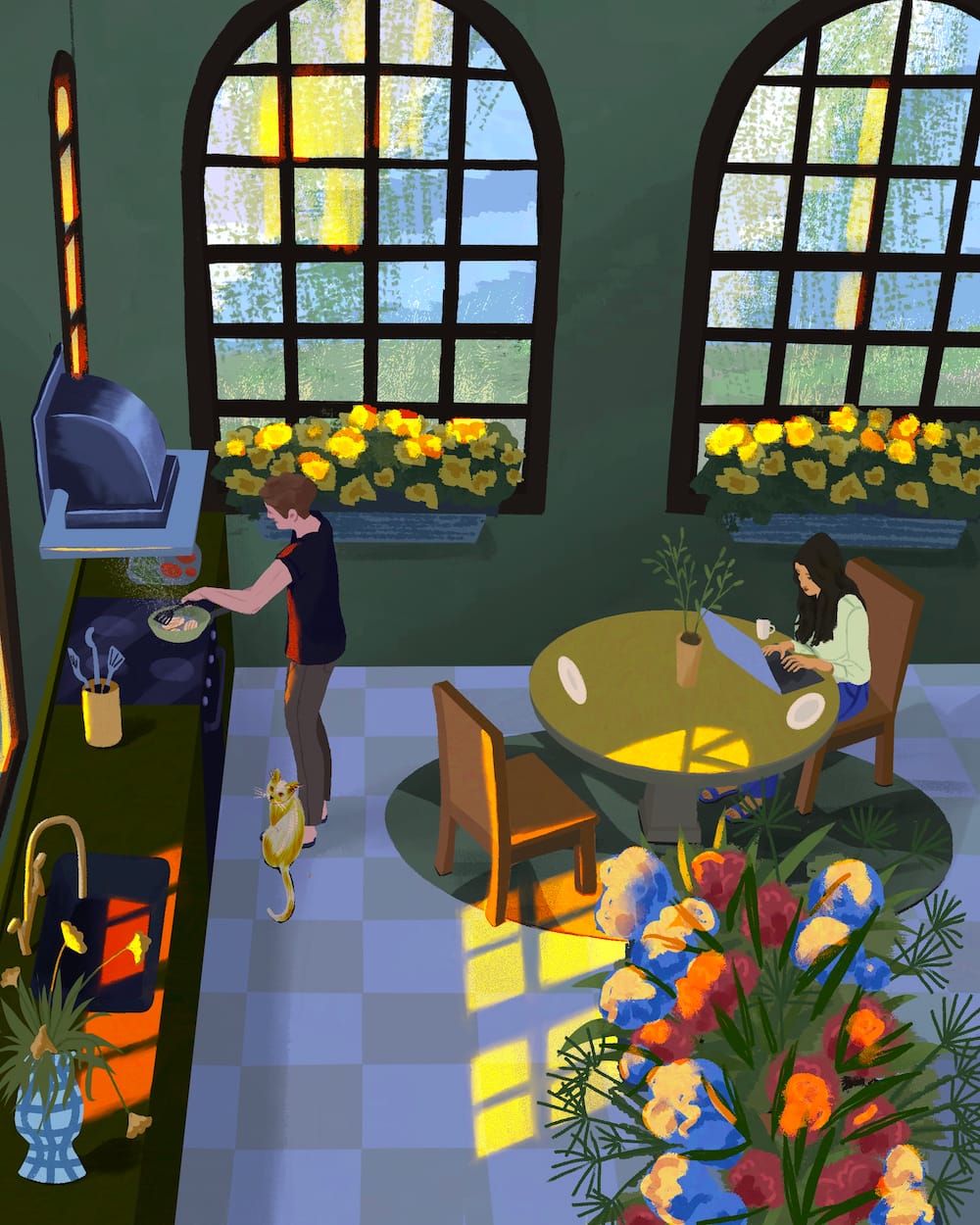
Picking up after the fall
Then, a year and a half ago, at not yet 75, my mom was diagnosed with Alzheimer’s.
The main reason we took her to the doctor was because she kept falling, for no apparent reason. She fell once, on her face, while taking a walk outside. Then, on New Year's Eve, she left the house without her phone, abandoning potatoes boiling on the stove. We spent that night searching for her until we found her in a hospital emergency room around midnight. A passerby had caught her falling and called an ambulance.
A week later, I took her to the doctor.
“Why are we going?” she asked.
I said, “To check that everything is OK.”
“I’m OK.”
“I know. But you fell twice.”
I decided I would go in and talk to the doctor by myself first, to tell her things I couldn't say in front of my mom. Already, the role reversal, minor as it was, felt disorienting. When I told her the plan, my mother didn't protest, as if I were the adult now and she the child.
Already, the role reversal, minor as it was, felt disorienting. When I told her the plan, my mother didn't protest, as if I were the adult now and she the child.
I told the doctor about the New Year's Eve incident, about my mother’s declining personal hygiene, her neglected apartment, and how she kept searching for my father even though she knew he had died three years earlier during the pandemic.
I thought the doctor would prescribe antidepressants and we’d be done with it.
But when my mom came into the room, the Russian-speaking doctor started loudly asking questions that seemed to me completely unrelated to the situation.
“Where do you live?”
She gave her address.
“What floor?”
“Third.”
“When did you come to Israel?”
“19….87”
My jaw dropped. She was off by 10 years. Maybe she’d misspoken.
“Where did you come from?”
“Kirishi.”
“Where??” the doctor grimaced. Nobody knows where Kirishi is (it’s a small city in Russia and we usually say we’re from St. Petersburg), but before I could intervene to explain that she was correct, the doctor subtly waved me away.
The questions continued, and though sometimes my mother answered correctly (she knew, for instance, that I was her daughter) she got confused about who had come to Israel when, mixing up years and people as I kept trying to justify it all in my head—She must be tired. But the justifications didn’t convince me. The earth had already been swept from beneath my feet.
After that appointment, things began going downhill very quickly. We visited a neurologist who officially confirmed the diagnosis. Next came enrolling my mother in the seniors' club for people with dementia. Soon, it became clear that she couldn’t be left alone, so we found a live-in caregiver. For a while, she could still do her daily tasks and handle personal care on her own, but within months, she needed help with everything.
The new normal vs. the new now
I take a pencil out of my bag and ask my mother if she wants to draw. She nods. She barely speaks anymore (in any language), but she can nod yes or shake her head no. It takes her twenty minutes to draw a flower. She forms three petals and then stalls, tracing over the same petal again and again, while looking distractedly around the room, apparently not understanding that she needs to adjust the position of the pencil to draw the petals at the bottom. I rotate the page so she can finish (not that she cares, but I can't bear to look at that unfinished flower and that tortured last petal).
Recently, a well-meaning friend asked how all this has made me feel. But I can't even answer. It’s not that I’m numb, in fact, I'm exactly the opposite: I feel like a pot of boiling feelings, and I'm barely keeping the lid on.
But I don’t have the luxury of allowing myself to stop and reflect on how my mother’s state makes me feel. In the last 18 months, every time I’ve allowed myself to dwell on my anger or sadness or resentment—"Oh no, all she wants to do now is color in mandalas like a 5-year-old!"—I've been slapped in the face by another new normal.
Now, I miss the time when she sat in front of the TV all day and could color mandalas. Just like I miss the days when she could eat by herself, even though the food occasionally fell out of her mouth. At least she was eating by herself.
Apparently, this is our new normal. Except it doesn't feel right to say even that. Because the phrase "new normal" implies you've arrived somewhere, and that things will stay constant for a while. But in my mom's case, the only constant has been that her condition keeps getting worse at an astonishing pace.
So, what I’ve started to say is: This is our new now.
I've long gotten used to the fact that she's not the adult in the room anymore. But the idea that I have to be the one who holds everything together, the one taking the metaphorical pencil lead out of her ear—that still terrifies me.
Will that anxiety ever dissipate? Maybe. But not today.
Tanya Mozias is a Russian-born, Israel-based essayist and linguist whose work has appeared in Oprah Daily, The Washington Post, The Boston Globe, and other outlets. She writes Friends with Words, a newsletter exploring language, identity, and culture through story.



